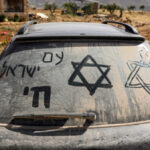Summary by Geopolist | Istanbul Center for Geopolitics
The article from the Centre for Strategic and International Studies (CSIS) examines prospective scenarios for a Chinese blockade of Taiwan, examining how China could employ military, economic, and strategic tactics to exert pressure on Taiwan to submit without resorting to a full invasion. It delineates three primary blockade strategies: a limited blockade, a mining blockade, and an all-out kinetic blockade. The first scenario is the most aggressive, while the third is the least escalatory, and each scenario involves varying levels of military engagement. China would most likely use its navy, air, and rocket forces to collaborate with law enforcement and maritime militias. The report concludes that though a blockade may be effective, it poses substantial risks and uncertainties for China, particularly if international forces intervene or Taiwan demonstrates its resilience.
Three potential blockade scenarios that China may implement to exert pressure on Taiwan are identified in the CSIS report:
1. Complete Kinetic Blockade: In this most aggressive scenario, China would employ its entire military capabilities, including its naval and aviation forces, to impose a complete blockade of Taiwan. This would entail the extensive use of missile assaults, air and naval interdictions, and the closure of sea and air routes to Taiwan. The objective is to completely isolate Taiwan, which could result in the internal economic and social disintegration by preventing all imports and exports.
2. Mining Blockade: To restrict maritime traffic, China could deploy mines in the waters surrounding Taiwan, particularly in critical shipping lanes and ports. Although this approach is less overtly aggressive than a kinetic blockade, it has the potential to significantly disrupt Taiwan’s economy by restricting its trade operations. International intervention may also be complicated by the use of mines, as it reduces the likelihood of an imminent military confrontation.
3. Limited Blockade: This scenario is a more focused approach that entails the selective restriction of specific areas, such as specific shipping routes or critical ports. China could enforce this blockade with less force by employing maritime militias, coast guard ships, and naval patrols to intimidate and torment ships travelling toward Taiwan. This approa
ch would mitigate a full-scale conflict while simultaneously increasing the pressure on Taiwan.
China’s decision to implement any of these scenarios would be contingent upon its broader strategic objectives and the international response, as each scenario carries varying levels of risk.
The CSIS report also outlines the following as the substantial risks and uncertainties that China would encounter in the event of a blockade of Taiwan:
1. International Intervention: A blockade could elicit a robust international response, particularly from the United States and its allies, who may perceive it as an aggressive violation of international norms. This could result in military intervention, economic sanctions, or other forms of international pressure on China, which could complicate its objectives.
2. Escalation to Full-Scale Conflict: The risk of escalation is always present, despite the fact that a blockade is designed to exert pressure on Taiwan without an explicit invasion. Taiwan may respond militarily, or external powers may intervene to disrupt the blockade, resulting in a more extensive conflict than China had initially anticipated or prepared for.
3. Political and Economic Repercussions: A blockade could significantly disrupt global trade, with a particular emphasis on China’s economy. The Taiwan Strait is the site of numerous critical shipping routes, and a prolonged blockade could result in economic repercussions for China, which is heavily dependent on global markets. Furthermore, foreign sanctions could have a negative impact on China’s economy and international relations.
4. The Resilience of Taiwan: Taiwan may be more resilient than anticipated in the event of a blockade, particularly in light of potential support from the international community. Alternative supply routes may be identified, or supplies may be secreted in. China’s leverage may be weakened and the conflict may be prolonged if the blockade is extended without the desired outcome.
5. Impact on China’s Global Image: An aggressive action, such as a blockade, could tarnish China’s international reputation, thereby serving to reinforce its perception as a destabilizing force in the region. This might result in diplomatic isolation, a loss of international trust, and strained relationships with important commercial partners and allies.
6. Unpredictable Military Dynamics: The operation of military forces, particularly in a tense and contested environment such as the Taiwan Strait, is characterized by inherent unpredictability. An uncontrollable escalation of hostilities resulting from accidents, miscalculations, or unexpected resistance from Taiwan could complicate China’s strategic objectives.
7. Internal Political Pressure: If the blockade fails to achieve its goals or causes severe economic or military losses, China’s leadership may experience internal political pressure. Dissatisfaction among the Chinese populace could result from prolonged conflict or economic disruption, which could potentially challenge the government’s authority.
The prospect of a blockade for China is a complex and potentially costly decision due to the risks and uncertainties involved.
Read the full report here.







